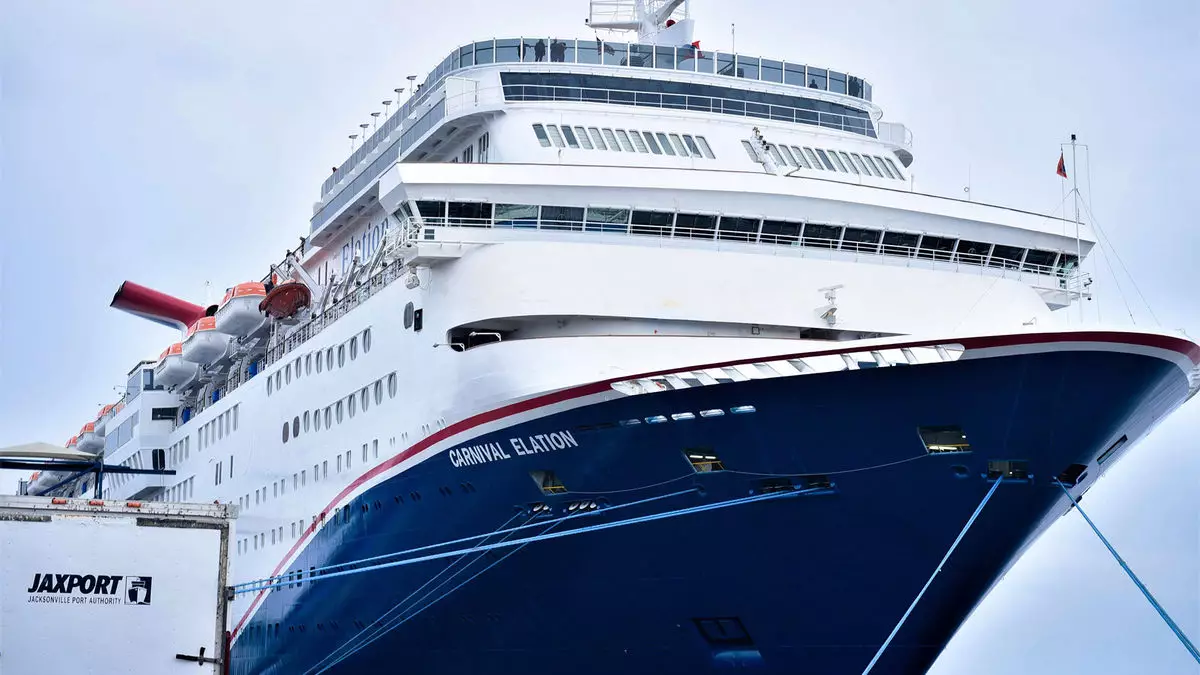Hurricane Helene swiftly escalated to hurricane status on Wednesday, wreaking havoc in the Gulf of Mexico and significantly impacting both land and sea travel. As the storm approached landfall in the Florida Panhandle, travel plans for countless individuals were disrupted. Particularly hard-hit were popular cruise itineraries along the Florida West Coast and ports such as Cozumel. The rapid development of Helene highlights the ever-present threat posed by tropical systems in the region, necessitating urgent adjustments by cruise lines to ensure the safety of passengers and crew.
In response to the impending storm, Carnival Cruise Line implemented a series of proactive measures. The company announced that ports in Tampa and Jacksonville would be closing Wednesday night, prompting the cruise line to keep vessels, including the Carnival Paradise and Carnival Elation, away from the ports. While both ships were deemed to be a safe distance from Helene’s path, the decision to remain at sea was vital. Safety protocols dictated that vessels could not return to their ports until post-storm assessments were completed. Carnival’s communication with passengers was pivotal during this crisis, urging them to stay informed by signing up for text alerts regarding changes to their voyage schedules.
Itinerary Adjustments and Passenger Communication
In light of the storm, multiple casualty alterations were made to the itineraries of several Carnival vessels. The Paradise, along with the Carnival Valor and the Carnival Breeze, saw their planned stops in Cozumel modified. The Breeze aimed to reposition to Progreso while the Horizon was rerouted to Amber Cay in the Dominican Republic. The Valor, unfortunately, faced limited options and returned to its home base in New Orleans. Communicating these changes effectively became a critical component of Carnival’s strategy during this chaos, ensuring passengers remained informed and reassured about their travel plans.
Similarly, Royal Caribbean International was not immune to the impacts of Hurricane Helene. Several ships initially set on journeys to the Western Caribbean were redirected to the Bahamas, avoiding the dangerous conditions created by the storm. The Independence of the Seas, for instance, adjusted its course to Nassau, while ships like Grandeur of the Seas and Serenade of the Seas prepared to dock at both Nassau and Freeport. Notable adjustments were also made by the Wonder of the Seas, which shifted its calls from Cozumel and Costa Maya to St. Thomas and St. Maarten. The need for adaptability among cruise lines was put to the test, showcasing their operational flexibility in the face of natural disasters.
In stark contrast, Norwegian Cruise Line, alongside its subsidiaries, reported that none of its itineraries faced disruption due to Helene. This stability could emerge from advanced planning or geographical positioning that allowed them to avoid the path of the storm altogether. However, the focus on operational success at Norwegian does not overshadow the turmoil affecting others in the cruise industry.
The Broader Impact and Continuing Developments
As Helene barreled towards the Big Bend region of Florida’s Northwest coast, predictions indicated it could make landfall as a formidable Category Four hurricane. Reports indicated that resorts in Cozumel and Cancun were grappling with severe weather conditions, including intense rainfall and high winds. This situation exemplifies the unpredictable nature of hurricanes and their potential impact on local economies reliant on tourism.
With the storm’s development still unfolding, the situation surrounding Hurricane Helene remains dynamic. The cruise industry, known for its sensitivity to environmental conditions, must remain vigilant and responsive as the fallout from this storm continues to affect travelers and operators alike. The broader implications for travel infrastructure and regional tourism cannot be understated, underscoring the necessity of preparedness in an industry subject to the whims of nature. This incident serves as a reminder of the inherent risks in travel—the importance of adaptability, communication, and passenger safety.

